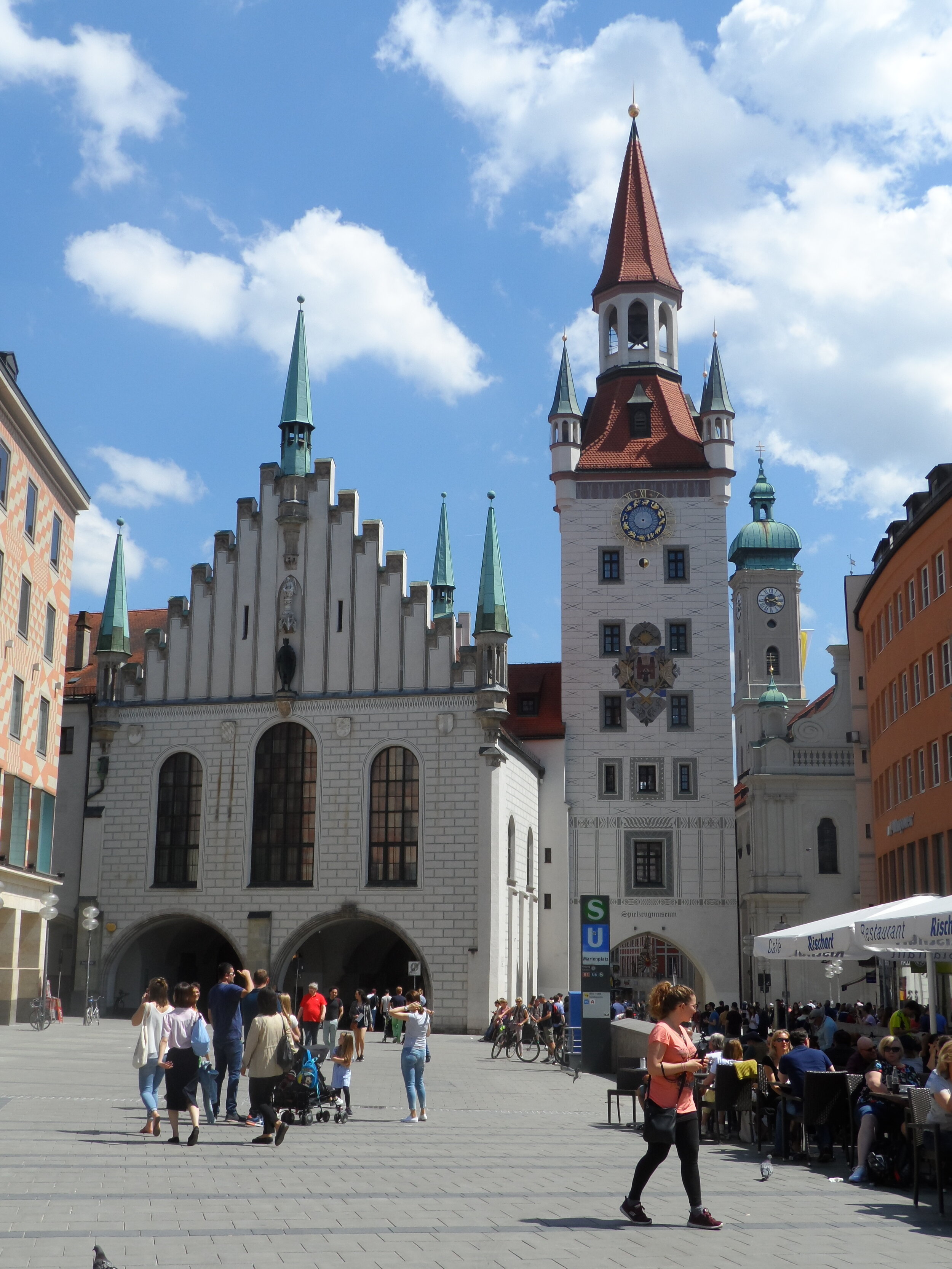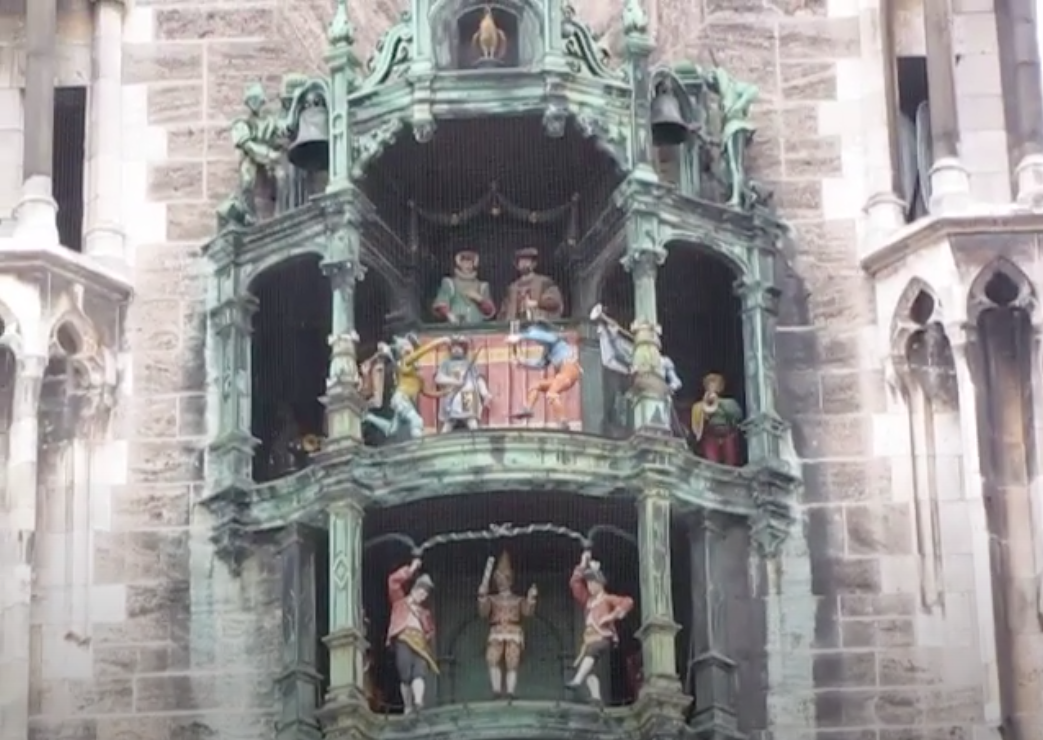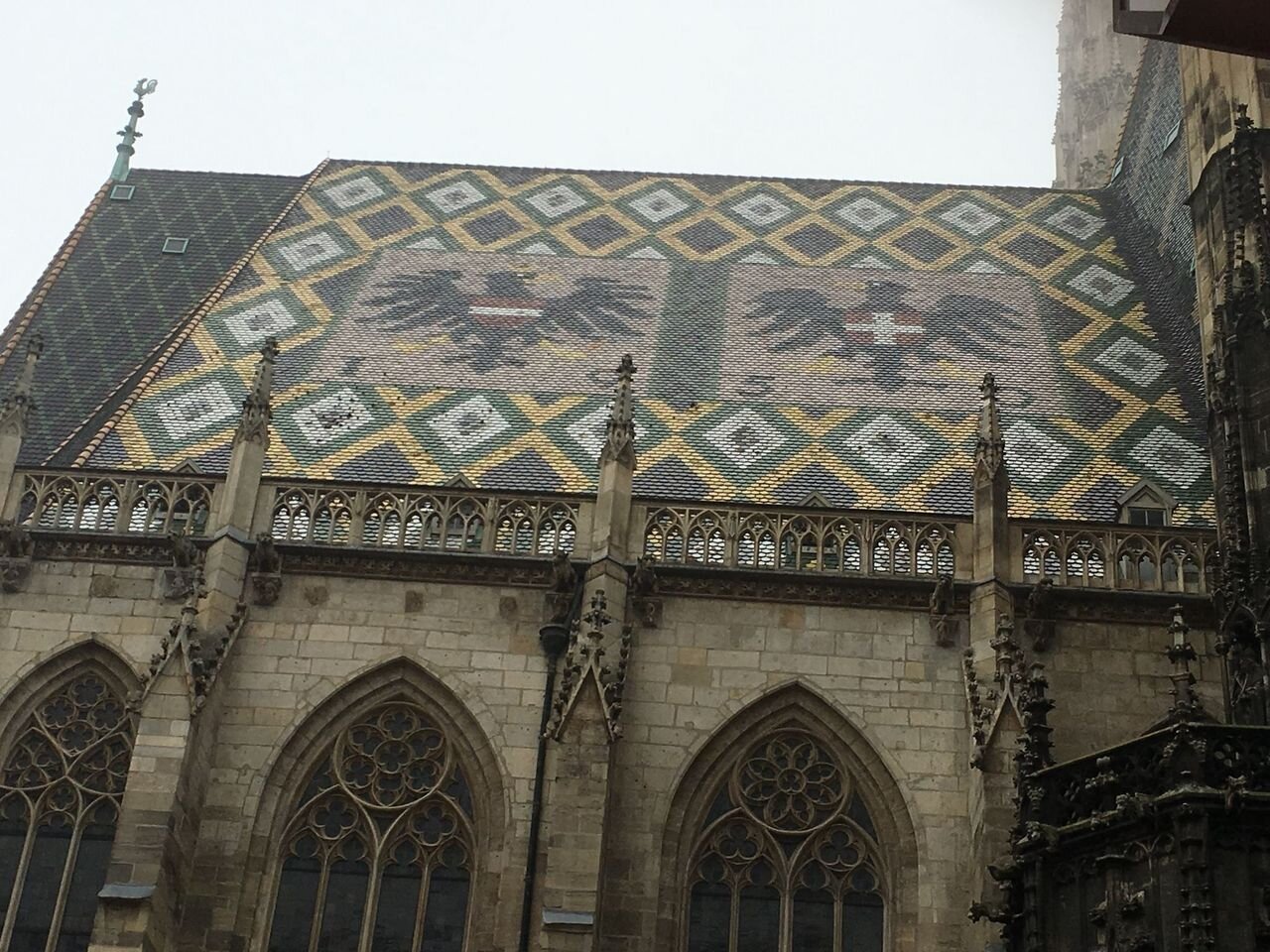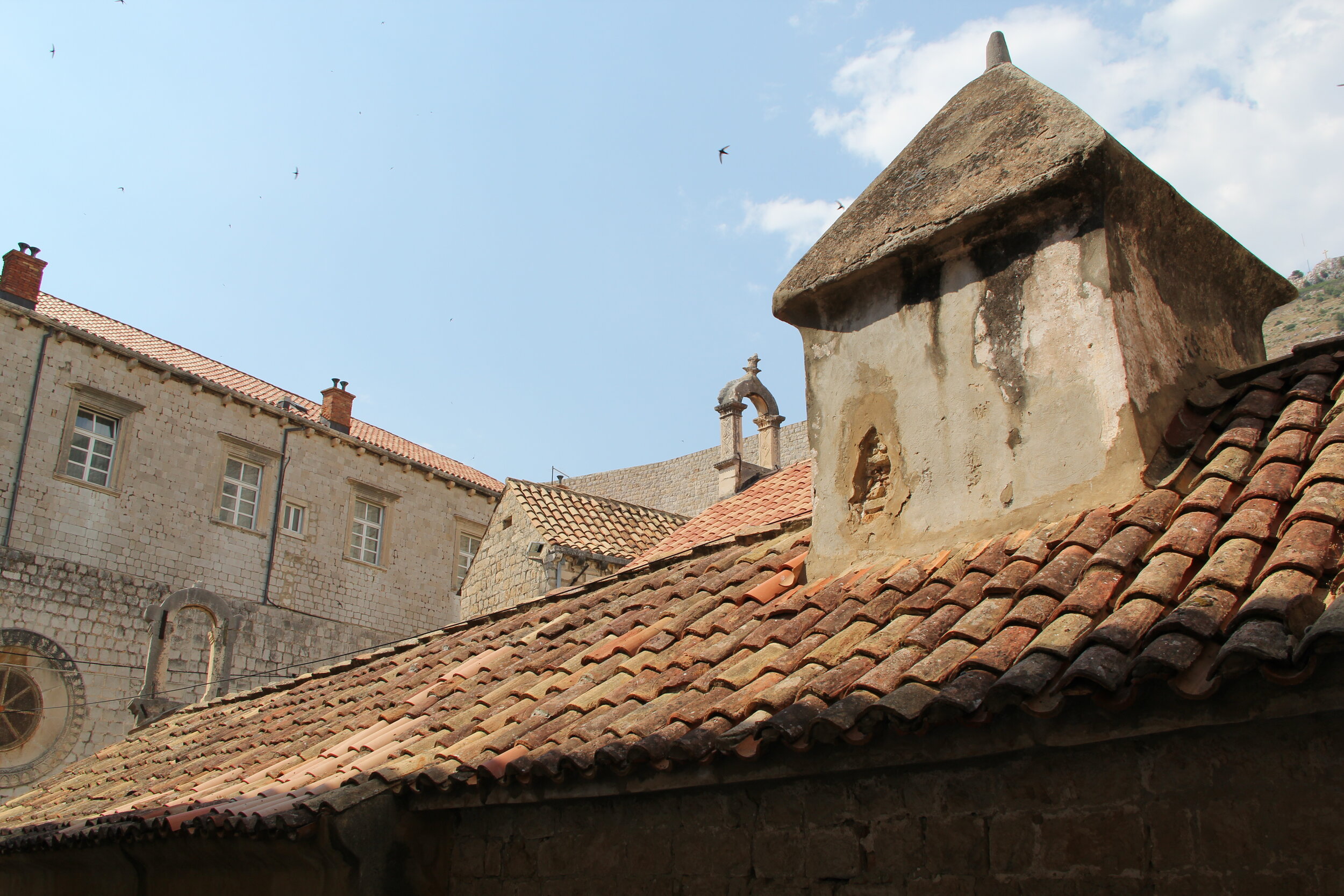Seeing Double in Europe
Hank Schrader, USMA '71, Europe Destination & Europe River Cruise Expert
After traveling several times to Europe, we would often think that we had seen something quite similar to the new site we were currently visiting.
So, I thought I’d write an unusual blog about seeing double in Europe—places that either had a twin or similar site or does a double duty in its function.
Don’t expect that this is a scientific study—this is our picture report of how one site reminded us of another place or does a double duty.
So, let’s begin our mystery tour of Europe.
A Famous Bridge that has a Twin
One of the most interesting bridges in all of Europe is the Charles Bridge in Prague. It is pedestrian only and adored with statues of 30 Saints. Construction of this bridge started in 1357 and was completed in the early 1400s. Here are two pictures:
Charles Bridge in Prague
People on the Charles Bridge—you can see the castle in the background
However, this bridge has a twin—in Würzburg, Germany. The old bridge was constructed from 1473 to 1543. There are 12 statues of Saints and is pedestrian only, just like the Charles Bridge.
Take a look and see if they look very similar to you with these 2 photos.
Old Bridge over the Main River
People on the Old Bridge in Würzburg
Double Duty Clock Towers
There are several impressive clocks that served in medieval times to tell time and provide additional information—usually astronomical information.
First up is the clock in Prague. The Astronomical Clock (Orloj)--on the side of the Town Hall Tower--consists of an astronomical dial embellished with zodiac symbols, a calendar dial and colorful, moving sculptures. As the clock chimes, biblical figurines come out, and spectators may watch the "Walk of the Apostles." An hourly bell toll features a figurine representing death. The clock comes to life from 0900 to 2100 daily.
Old Town Hall Clock Tower
Next up are two towers in Munich in the Old Town Hall and the New Town Hall in Marianlatz.
In the Old Town Hall the clock tower has a clock and an astronomical clock. The Old Town clock tells time; indicates the moon phase on a rotating ball; and has a zodiac on a fixed ring within a 12-hour dial. Here are 2 pictures of the Old Town Hall and its double duty clock.
Old Town Hall
Old Town Hall, Munich, Germany
On the New Town Hall, there is a tower with a famous glockenspiel (1908), which performs at 1100 and 1200 all year. The story is of a 1500 wedding, of a Bavarian Duke (blue & white) and his French bride (red & white), knights and celebrations. Enjoy these photos of this unique Munich spectacle.
The New Town Hall in Munich
The New Town Hall Tower
Clock on the New Town Hall in Munich
People Waiting for the Glockenspiel Performance—you can see the figures on the left tower
The Glockenspiel Figures
An easily missed astronomical clock tower is in Hampton Court, just outside London. On the inside of the main gate house, there is an astronomical clock. The time clock is on the other side.
Outer Main Gate Clock Tower
Inside of the Main Gate with the Astronomical Clock
Lesser known clock towers are also worth knowing about.
In Dubrovnik, the clock tower also has another function. The rotating moon ball shows the lunar phase.
Clock tower
Close up of the clock tower
In the island of Malta, a clock on a church does double duty by telling us the time, the day of the week and day of the month. Here are 2 pictures of the St. John’s Co-Cathedral (this is another similar named St. John’s Cathedral on the island):
St. John’s Co-Cathedral in Valletta, Malta
Close up of the clock tower
In Venice, many don’t realize there is an astronomical clock on a beautiful building—the St. Mark’s Clock Tower. This tower has several functions. Part of the reason is you have to examine closely the whole building tower to see all the functions of this clock tower.
St. Marks Clock Tower
The first clock is not a dial type in the higher portion of tower—there are numbers in two blue panels that tell the hour (in Roman numerals) and 5 minute intervals (in Arabic numbers).
Close up of the Clock Tower
Below the panels is a large clock that is a 24-hour dial type clock with Roman numerals for each hour. The dial is a gold pointer that represents the sun and tells the hour of the day. It also has all the signs of the zodiac, and a moon phase clock.
Please take your time to study these pictures to learn more about this wonderful clock tower.
In Old Town Lyon, the St. Jean Cathedral has a clock and also has astronomical clock. It has an astrolabe dial (an instrument to measure the position of sun and prominent stars) and a calendar dial. On the front portals are medallions depicting the signs of the zodiac, the Creation, and the life of St. John.
St. Jean Cathedral in Old Town Lyon
While this clock is not a double duty clock, it does have a special feature. Located in Novi Sad, in the Petrovaradin Fortress, this clock tower has reversed clock hands to help fisherman on the Danube River—the hour was more important than the minutes, as it was for soldiers stationed in the fortress. It is a four sided clock, so it can be seen from many different vantage points.
Petrovaradin Fortress
Clock Tower with reversed hands
The numbers on the clock are huge—around 2 meters or 6 feet. This was a clock designed to be seen at great distances.
Tile Roofs
Glazed tiles make roofs highly decorative and add to the importance and splendor of buildings. Sometimes, even plain tile roofs can tell a story. Here are some famous examples—do many look similar to you?
So, let’s learn more about tiled roofs.
The Gothic towers and tiled roof of St. Stephen’s Cathedral still dominates the skyline of old Vienna. Visitors can climb to the top of the south tower for a splendid view of the city. The north tower has a 22-ton bell nicknamed the boomer (Die Pummerin).
But the most distinctive feature of this cathedral is the tiled roof of this 364 foot long structure. My research found that the roof has over 230,000 tiles in distinctive patterns. The roof is sharply pitched to keep snow off the roof and to allow the rain to clean the tiles. On one side is the double eagle, the symbol of the Hapsburg Empire.
St. Stevens at night, Vienna, Austria
There are also 2 other mosaics, depicting the coat of arms of the city of Vienna (right side) and the Republic of Austria (on the left in the picture below), with single headed eagles.
South side of St. Stevens with mosaics of the coat of arms of Austria and the city of Vienna
Our next stop is in Budapest to see two tiled roofs. The first is on the Buda side at St. Matthias Church. The tiled roof is stunning, made with tiles from the famous Zsolnay porcelain factory located in Pecs, Hungary. Here are two pictures:
Matthias Church on the Buda side of Budapest
Matthias Church roof close up
The next roof in Budapest is the Central Market (it is also called the Great Market Hall). You can clearly see the similar tiles in these two pictures—it should come as no surprise the tiles came from the Zsolnay porcelain factory.
Great Market Hall in Budapest
Close up of the tiled roof—just stunning!
Now, we are off to Serbia and the town of Novi Sad. The Name of our Lady Catholic Church in Liberty Square has a tiled roof made with Zsolnay tiles. Here is a picture of this splendid roof.
Novi Sad
Our last stop is a look at roof tiles that tell a story of a war. We are going back to Dubrovnik, where the roof color tells us about the damage war brings to the old town area. The lighter colored tiles were not damaged, as you can see in this picture.
A roof that was not damaged
Looking at the city, the distinctive red roof tiles stand out among the stone buildings. According to one source I read, 70% of the roof tiles were destroyed in the 1991 war and replacing them cost 9 million dollars for the needed 200,000 or more red tiles.
All bright red roofs—these buildings all were damaged during the shelling
As you look at these pictures, it reveals the vast amount of the destruction the shells caused to the city dubbed “The Pearl of the Adriatic”. It is a somber reminder of how fragile our world really is.
A great photo by Anne that captures the contrast between the undamaged roof in the foreground and the extensive damage towards the back of photo.
A Tiny Statue that has a Twin
Perhaps one of the best love sculptures in Europe is a young naked boy taking a piss—we know it as Manneken-Pis. It has become the symbol of Brussels because it represents for the Belgium people their sense of humor and independent thinking.
This bronze statue was designed by Jerome Duquesnoy in 1619. It is an iconic landmark and people have fashioned an extensive set of costumes for the 24 inch figure.
Manneken-Pis on display—most are surprised at how tiny he is!
Manneken-Pis close up
His costumes have its own museum but he is not alone in Europe.
Manneken-Pis in the hospital with an IV at the Museum Display
Manneken-Pis Museum—you see the rows of display cases—a great visit in Brussels
There are several official copies of the little guy. One is in Colmar, France.
Here is a picture of his twin in Colmar.
Manneken-Pis in Colmar—this is an official replica
My Final Thoughts
What a great adventure—seeing double in Europe—just another reason we love the Old World of Europe so much! We hope you enjoyed these pictures as much as we enjoyed seeing them during our travels.
We are travel experts, ocean and river cruise specialists, and Europe destination experts. We have first-hand knowledge of almost anywhere you want to visit in Europe. We know our products and the vendors who sell them to you. We have designed special tours for dozens of clients, led several and will continue to find just the right vacation that will exceed your expectations.
When you are spending your hard-earned money for a vacation, you want an advisor who can match you with the right trip. You want someone who will understand your expectations and fuel your anticipation (or excitement) to get you the best possible trip experience. And, you want someone who can help you with the decision making process. We think we have all these qualities.
Whatever your Dream Destinations are, we are here to help you get the best possible vacation based on what is important to you! We will provide you high quality, expertly planned travel. Please give me a call 713-397-0188 (Hank) or email me at hschrader@dreamdestinations.com. We want to help you: Savor life…make memories…Visit Dream Destinations! Your journey begins here!
HANK is a certified Western European Destination Specialist (DS) who has been traveling to Europe for 49 years. He is also an Accredited Cruise Counselor (ACC), conferred by the Cruise Line International Association (CLIA). This recognized expert in cruise and leisure travel is a retired Army Officer, and taught World Geography for 8 years. He is a `71 graduate of West Point and has earned 2 master’s degrees. His other Certifications:
AmaWaterways River Cruise Specialist
Viking River Cruise Specialist
Scenic River Cruise Specialist
Emerald Waterways Specialist
Avalon Waterways Specialist
Brit Agent














































